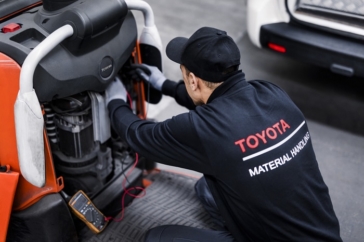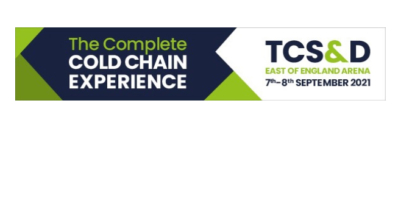-
ROSSLARE EUROPORT TARGETS HEALTH & SAFETY WITH CAMERA TELEMATICS PARTNERSHIP - 2 days ago
-
Landmark Study Reveals Wearable Robotics Significantly Boost Safety and Efficiency in Industrial Environments - July 24, 2024
-
Visku Tackle The Retail Seasonality Challenge One Pallet At A Time - July 22, 2024
-
KAMMAC AND BERGEN LOGISTICS STRENGTHEN FASHION & LIFESTYLE SERVICES IN THE UK - July 19, 2024
-
TENTBOX EXTENDS PARTNERSHIP WITH ARROWXL TO SUPPORT INCREASING DEMAND - July 17, 2024
-
The Perfume Shop improves customer journeys while driving profitability in partnership with Scurri - July 17, 2024
-
ZEROMISSION SECURES £2.3M ($3M) INVESTMENT TO ACCELERATE ELECTRIC FLEETS - July 16, 2024
-
BCMPA CELEBRATES SUCCESS OF 2024 CONFERENCE - July 15, 2024
-
Best of the Best: Jungheinrich Celebrates Triple International Award Win - July 12, 2024
-
GOPLASTICPALLETS.COM CALLS ON NEW CHANCELLOR RACHEL REEVES TO CONSIDER PLASTIC PACKAGING TAX REFORM - July 10, 2024
At a time when companies are focused on keeping business costs to a minimum a strict materials handling equipment maintenance and servicing regime is more important than ever, says Toyota Material Handling UK Ltd’s Service Sales Manager, Andy Pritchard
Regardless of whether your business operates a single pallet truck or a large fleet of varied materials handling equipment, when sourcing forklift trucks it is important to deal with an organisation that has the infrastructure in place to guarantee the highest levels of lift truck service and maintenance support.
A regular servicing and maintenance regime is the best way of preventing significant truck downtime – and all the cost and disruption to a business that can entail. And, with repair costs for serious truck damage rising, a commitment to forklift maintenance and servicing is becoming more important than ever.
Toyota offers a range of after-sales care and support packages to suit the business needs of companies of all sizes operating in all industry sectors. For example, the ‘full service’ package involves a comprehensive parts and labour plan that covers preventative maintenance, breakdowns and parts used in service and breakdown repairs.
Most Toyota customers agree a planned service contract at the time that they buy or rent their truck or trucks. With the support of Toyota’s dedicated after-sales development team to guide them through the various options available, Toyota customers can choose their plan with complete confidence, safe in the knowledge that it will keep their trucks safe and in good working order to ensure that they get the most out of their materials handling equipment at all times.
Customer satisfaction is our number-one priority and we do everything we can to meet our customers’ needs and expectations. Since service is a key differentiator, it’s important to us and, of course, our customers, that we carry out preventative maintenance and any repairs that are required quickly and efficiently.
We apply the Toyota Service Concept, a structured approach to optimise our services that is based on 12 key values that include ‘Poka Yoke’ – a Japanese term that means ‘mistake-proofing’ or ‘inadvertent error prevention.’ For example, by constantly upgrading the quality of spare parts and checking them before shipping, we ensure that the right part will be delivered in time.
Across the UK we employ some 600 technicians. We guarantee to respond to a customer’s request for assistance within 4 working hours and have a 96 per cent first time fix rate. We aim to get things right the first time so we make sure parts are available when they are needed. And, we service any make of truck – not just Toyota models – which is essential for those clients that operate mixed fleets.
95% of spare parts are always available and any Toyota parts that are not held in stock are delivered within 24 hours. The genuine Toyota parts used are designed and tested to be safe and to prevent equipment failure, which means downtime risk and repair costs are lower and a client’s operational efficiency and, therefore, profitability is increased.

































